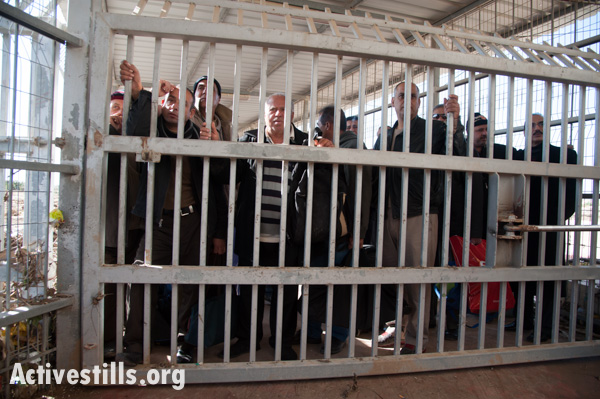The ease with which Israel can give and take away, allow and deny, isn’t just disturbing and depressing, it’s also further proof, in case anyone needed any, that Israel’s control over daily life in Gaza is immense.
By Amir Rotem

Early last week, the Palestinian media reported that the Palestinian Civil Affairs Committee had reached some new understandings in its talks with Gaza District Coordination Offices (DCO) officials and that, among other things, for the first time in 15 years, Gaza residents would be allowed to travel to the West Bank for academic studies. On Wednesday, the Israeli Coordinator of Government Activities in the Territories (COGAT) posted (Hebrew) on its website that 50 students from Gaza would be permitted to study in the West Bank.
Only a few hours later, when the news caught the media’s attention, COGAT’s spokesperson said that the publication was the result of an error. A copy of the “Closure Permissions Status” document, a document that lists the restrictions imposed on the Palestinian public and is updated every few weeks, was removed from COGAT’s website and was reposted only the next day, after the section was deleted.
What went on behind the scenes in those lost hours between the publication and the decision to remove it? According to members of the Palestinian Civil Affairs Committee, the issue was agreed in advance and the Israeli publication merely confirmed it. It takes a large dose of suspension-of-disbelief to simply accept COGAT’s claim that this was a “clerical error,” as they called it.
And why should news that 50 students who might, perhaps, at some point, under some conditions, receive a permit to study cause such a stir? Mainly because it was supposed to show yet another crack to Israel’s insistence that its closure concept, i.e. that isolating the Gaza Strip and separating its residents from the other part of the Palestinian territory, is legitimate and necessary for political and security reasons. Without going into the nature of this “policy,” which, as stated by a cabinet member, the defense minister could only say was a result of “inertia,” it is possible to say that the Israel-Hamas ritual of violence, with the terrible price it exacts, is probably the strongest proof that the system has failed. Surprisingly, top security officials have acknowledged this and have changed their tune (Hebrew) since the last round of violence ended, exactly six months ago.
As part of the official commitment pledged to mobilizing for Gaza’s reconstruction, its economic recuperation and its’ residents return to normal life, a lot more has to be done than the baby steps Israel has taken so far. More construction materials must be allowed in for rebuilding, but access to markets, professional opportunities and academic opportunities are no less important. Academic freedom will allow Gaza’s younger population to train in critical professions, access education and play a part in building a functioning society, which, most people agree, if allowed to thrive would help make the region more balanced.
The ease with which Israel can give and take away, allow and deny, isn’t just disturbing and depressing, it’s also further proof, in case anyone needed any, that Israel’s control over daily life in Gaza is immense. The moment Israel assumes this control, it must understand that it comes with a responsibility for civilian life – a responsibility it can’t just shrug off. Basic human rights, including the right to education, are just one aspect of this responsibility.
Amir Rotem is the Director of Gisha’s Public Department. This article first appeared in Hebrew on +972’s sister site, Local Call. Read it in Hebrew here.
